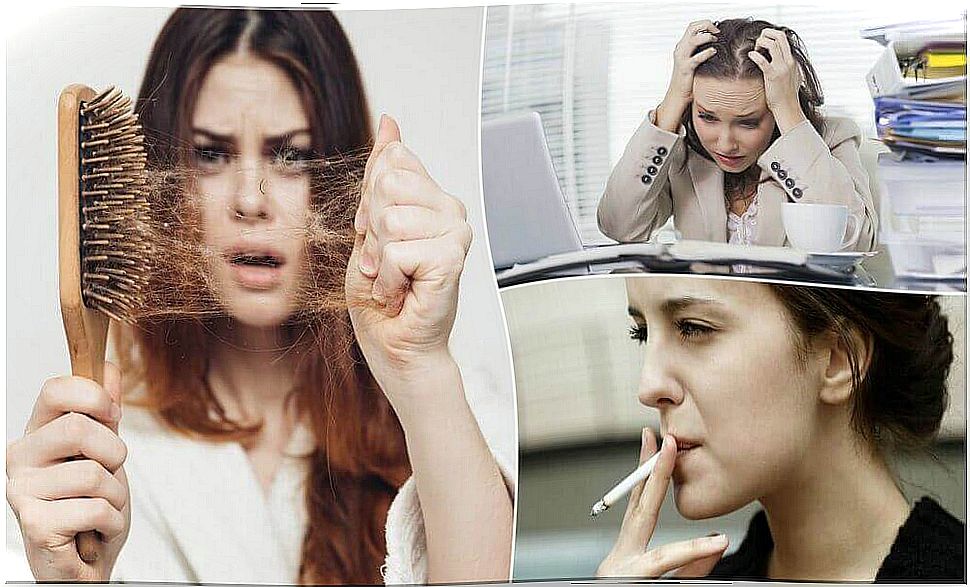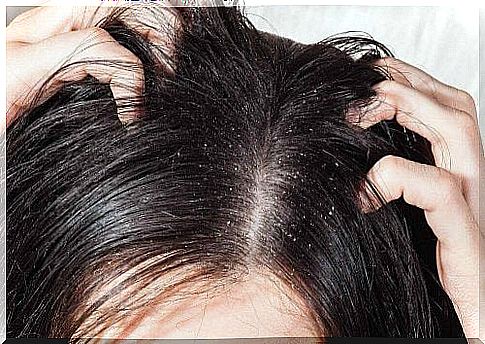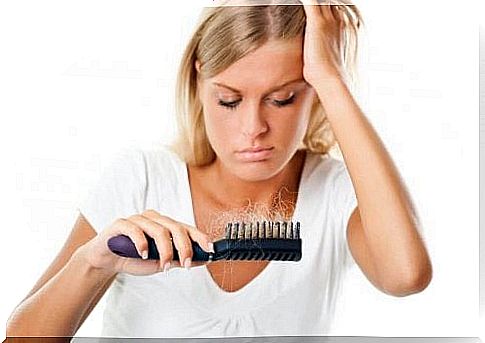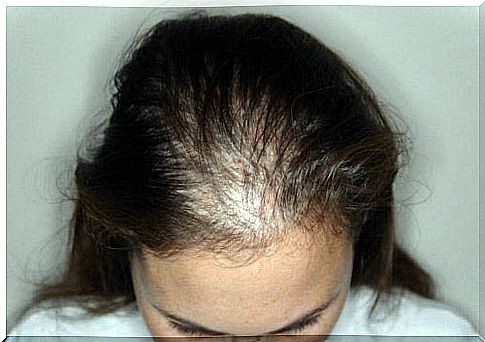10 Reasons That May Explain Your Hair Loss

The hair goes through different phases: it grows, absorbs nutrients and falls out over time to make room for new hair. In this article, however, we want to share with you 10 reasons that could possibly explain excess hair loss.
During the different phases of hair growth, it is normal to lose up to 100 hairs per day. However, what is not normal is excessive hair loss that significantly reduces hair volume.
People who suffer from hair loss can really feel the effects when brushing, combing or towel drying their hair, as well as during other situations where they touch their hair.
When hair loss becomes severe, noticeable bald spots can develop. Besides being an aesthetic problem, hair loss can affect our self-image.
Currently, there are many cosmetic treatments that can reverse the situation. However, knowing the cause of hair loss is crucial to effectively combating it.
Explaining Hair Loss: Reasons Why Your Hair May Fall Out
Excessive hair loss occurs when hair follicles undergo a change. However, there are also other factors that can play a role.
1. Prolonged Exposure to Stress

Prolonged exposure to stress is one of the possible causes that can explain hair loss. Hair loss is caused by an increased production of cortisol. This is a hormone that negatively affects the health of the hair.
2. Taking Certain Medications
There are many drugs that have excessive hair loss as one of their side effects. Taking these drugs over a long period of time can weaken the hair follicles and thus thin the hair:
- Chemotherapy Medications
- Blood Pressure Medication
- Medication for Parkinson’s disease and cardiovascular disease
3. Iron deficiency

A major reason for hair loss is anemia due to iron deficiency. Low iron levels in the bloodstream prevent capillary cells from getting the oxygen they need. This can then lead to weaker hairs.
4. Excess oil
For strong and healthy hair it is important, among other things, that the natural oils are in balance. If sebaceous glands produce too much oil, it can lead to all kinds of problems. The sebum secretion in the hair follicles thus blocks their oxygen and nutrient flow. In addition, it can also lead to dandruff.
5. Scalp Infections

The scalp is one of the most vulnerable parts of the body. If we don’t take good care of it, the risk of bacterial or fungal infections is greater. These conditions not only damage the hair follicles but can also lead to allergies and other symptoms.
6. Consuming Alcohol and Tobacco
The toxins in alcohol and cigarettes lead to reduced blood flow to the hair follicles. The use of these products often gradually damages the cells and thus increases the risk of excessive hair loss.
7. Certain diseases

There are many chronic diseases that can cause hair loss. These diseases can arise as a result of, among other things, a weakened immune system or complications in absorbing nutrients. Such diseases can thus weaken your hair. The most common cases include:
- Thyroid disorders
- Lupus
- Syphilis
- Cancer
- Autoimmune Diseases
8. Alopecia areata
There is no exact cause that can explain alopecia areata. However, it often occurs when patients have dealt with some type of autoimmune disease. With this condition, patients lose hair in certain areas of their body. These are almost always small, round spots.
9. Androgenetic Alopecia

Your hair loss can also stem from hereditary causes. In androgenetic alopecia, the hair follicles are thinner due to a higher level of male hormones and genetic predisposition.
10. Hormonal Changes
Hair loss due to hormonal changes is more common in women. It often occurs after pregnancy or before and after menopause.
It is a temporary form of hair loss that normally stops naturally when hormonal activity returns to normal. Hair loss can also occur in contraceptive users or patients undergoing hormone therapy.
Could any of these reasons explain your hair loss? If you notice that your hair is thinning and keeps falling out, make an appointment with your doctor.









